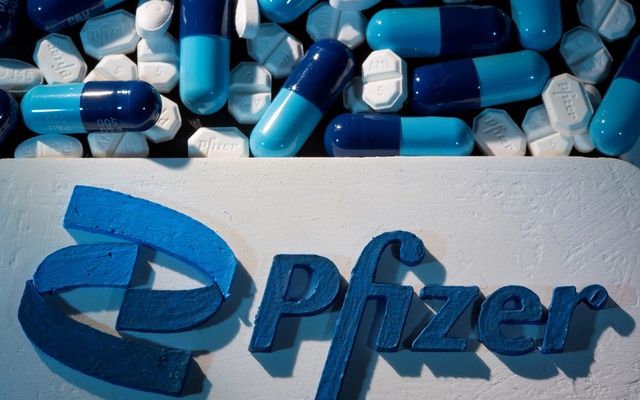Pfizer stated on Tuesday that it had reached an agreement that would enable its promising Covid-19 medication to be manufactured and supplied at a cheap cost in 95 impoverished countries that account for more than half of the world’s population.
The agreement comes on the heels of a similar agreement reached by Merck earlier this month, and the two agreements together have the potential to significantly increase global production of two simple antiviral pills that have the potential to alter the course of the pandemic by preventing severe illness caused by the coronavirus.
Pharmaceutical giant Pfizer will offer a royalty-free licence to a foundation sponsored by the United Nations for the drug as part of the arrangement, which will enable other companies to sublicense the medication from Pfizer. They will obtain Pfizer’s formula for the medicine and will be allowed to sell it for use in 95 poor nations, the most of which are in Africa and Asia, after the drug has been approved for use in those regions by authorities. In a similar vein, the organisation negotiated an agreement with Merck for their Covid antiviral medication, molnupiravir, which would be manufactured and distributed at a low cost in 105 poorest nations.
Despite this, there are considerable questions about whether this move will be adequate to provide a sufficient supply of the medicine for nations who continue to lack Covid vaccines in their supply chains.
Pfizer’s approach to its medication, on the other hand, is radically different from the way the company has approached its Covid vaccination. In all, the corporation has transported more than two billion vaccine doses throughout the world, but only around 167 million of those doses have been delivered to poor nations, which are home to over 4 billion people. It has not issued a licence to any manufacturers to produce its Covid vaccine, which is expected to generate $36 billion in sales this year.
According to the results of a major clinical trial, the Pfizer pill, which will be sold in wealthy countries under the brand name Paxlovid, was found to be highly effective in preventing severe disease when given to high-risk unvaccinated study volunteers as soon as they began showing signs of Covid.
In areas where few individuals have had the chance to get vaccinated, the pill is urgently required to prevent the spread of disease. It will also be considerably simpler to distribute than therapies that are generally administered intravenously since it is a tablet that can be taken at home.
However, Felipe Carvalho, the coordinator of Doctors Without Borders’ access-to-medicine campaign in Brazil, expressed disappointment that his nation had been left out of the agreement. The fact that a high-burden nation like Brazil is once again left behind in terms of access to treatment is “outrageous,” according to him. Despite the fact that Brazil is an upper-middle-income nation, he claims that three-quarters of the population relies on the public health system, and only a few can afford pricey treatments.
Despite their lofty claims, the effectiveness of the tablets from Pfizer and Merck will be dependent on patients’ ability to get inexpensive and simple Covid testing services. Treating the symptoms as soon as possible once they begin is essential for the most effective results, which experts expect will be tough in rich nations and much more difficult in developing countries where people have less dependable access to health-care specialists.
For the time being, Pfizer’s own manufacture of the medication will be restricted. The business claims it will be able to create enough tablets by the end of this year to treat 180,000 individuals, which would be enough to treat everyone sick in Florida during the peak of that state’s Delta wave for roughly a week. As part of its expansion plans, the firm hopes to produce at least 50 million treatment courses in 2022, with at least 21 million or more being produced in the first half of this year. Pfizer has said that it will charge less for the medicine in impoverished nations than it would price in affluent countries.
Pfizer’s medication may offer a number of benefits over Merck’s medicine, including the following: The method by which it prevents the coronavirus from multiplying seems to be safer, particularly when used in pregnant women or women who are planning to get pregnant, according to the results of clinical trials. Pfizer’s tablet is expected to see a rise in demand as a result of these variables around the globe.
Ritonavir is manufactured by generics manufacturers all over the globe, but the availability of this medicine will be critical to the success of the Covid therapy. Kit Longley, a spokeswoman for Pfizer, said that the firm did not anticipate any issues with ritonavir supply in the near future.
It will be feasible for physicians to combine the Merck and Pfizer medications once both become accessible as generics, allowing them to treat even more patients while keeping them out of struggling hospitals. Mr. Gore mentioned examples of other viruses, such as H.I.V. and hepatitis C, for which antivirals have been shown to be more successful when used in conjunction with one another.

